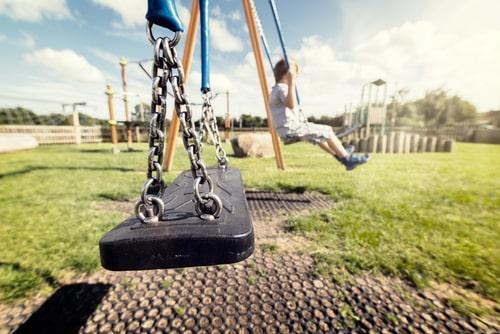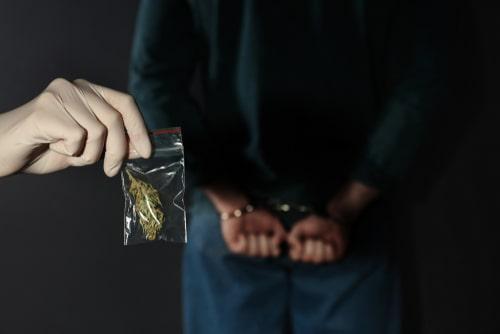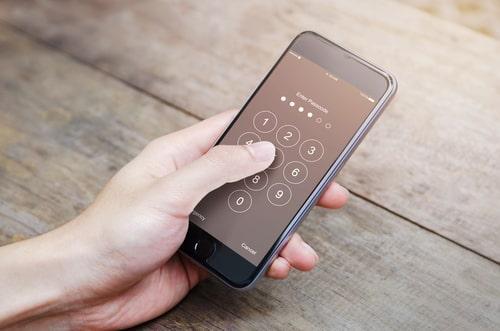Recent Blog Posts
The Crime of Child Identity Theft
 The crime of identity theft involves stealing an individual’s identity and using their personal information (including their name, Social Security number, credit or banking information, etc.) without their permission.
The crime of identity theft involves stealing an individual’s identity and using their personal information (including their name, Social Security number, credit or banking information, etc.) without their permission.
While many people may have heard of the crime of identity theft or may have even been a victim, one type of identity theft crime that is not as well known is the identity theft of a child.
Child Identity Theft
Because identity theft has become so widespread over the past several years, financial institutions and credit card companies are always implementing new security checks to fight against fraud. Many people have also taken steps to protect against identity theft, including putting alerts on any attempted activity connected with their credit history.
This has led to an increase in identity theft crimes that target the identity of children. People involved in this type of crime find that using the name, Social Security number, and credit history of a person who has no history to fraudulently obtain credit cards or other financial gains is a lot easier than attempting to use the identity of an individual who may have a checkered credit history or who has put alerts if anyone tries to access their history.
Update: Is "Free-Range Parenting" Considered Child Neglect in Texas?
 Posted July 29, 2019 ------------ Updated November 15, 2021
Posted July 29, 2019 ------------ Updated November 15, 2021
A recent change in the law makes Texas the third state in the country to pass a free-range parenting law. Under the new law – which went into effect September 1 – parents will no longer have the threat of a Department of Family and Protective Services investigation for neglect or the possibility of losing custody of their child to the state for allowing certain activities outlined in the new law.
Under the Reasonable Childhood Independence law, parents are allowed to decide if their children can play outside, walk to a friend’s home, stay home alone, or engage in other activities that are age-appropriate without the fear of being accused of neglecting their child. According to the new law, the state will no longer intervene and remove a child from their home unless “the danger is so great and so likely that it outweighs the trauma of entering the foster care system.”
Although the new law should decrease the number of unfounded child neglect accusations, there are still circumstances where these accusations can be made. If you have been accused of child abuse or neglect, contact The Crowder Law Firm, P.C. to find out how our firm can help.
Mexican Drug Cartels Using TikTok to Lure Texas Teens to Aid in Human Smuggling
 There is no denying that human smuggling has turned into a major issue in the United States. Here in Texas, many human smuggling victims are brought into the country over the border from Mexico. Anyone involved in human smuggling faces serious criminal charges if caught, but now comes news that Mexican drug cartels are enticing Texas teenagers to become involved in these dangerous smuggling operations, putting the teens at risk of not only facing arrest but also the potential for serious injury in the process.
There is no denying that human smuggling has turned into a major issue in the United States. Here in Texas, many human smuggling victims are brought into the country over the border from Mexico. Anyone involved in human smuggling faces serious criminal charges if caught, but now comes news that Mexican drug cartels are enticing Texas teenagers to become involved in these dangerous smuggling operations, putting the teens at risk of not only facing arrest but also the potential for serious injury in the process.
TikTok Advertisements
TikTok has become one of the most popular social media platforms for teens. Criminal Mexican cartels are taking advantage of this popularity and using the platform to attract teenagers into bringing illegal migrants into Texas.
According to an investigation conducted by a major news network, the cartels advertise on TikTok, offering teens one thousand dollars to drive the illegal migrants to Houston. Many of these migrants are actually drug cartel members or they have criminal records. Instead of surrendering to border authorities or being screened by immigration officials before being released, these migrants being smuggled are attempting to avoid apprehension because of their criminal histories and would be not allowed into the country by border patrol.
Texas Officials Declare Delta-8 THC Now Illegal
 The law regarding marijuana can be confusing. There may be differences between federal and state laws, and each individual state also has different laws. The federal government still considers the use of marijuana as illegal, yet some states have passed laws that make the use of recreational marijuana legal. Texas is not one of those states.
The law regarding marijuana can be confusing. There may be differences between federal and state laws, and each individual state also has different laws. The federal government still considers the use of marijuana as illegal, yet some states have passed laws that make the use of recreational marijuana legal. Texas is not one of those states.
One area where Texas law and the federal government do disagree on, however, is how it classifies delta-8 THC. While federal law has deemed the use legal, Texas health officials have now put it on the state’s list of illegal drugs, leaving those that sell CBD products in the state scrambling.
Delta-8 THC
Cannabis contains 100 cannabinoids. Cannabinoids are the active psychoactive compound found in cannabis. This includes various forms of THC and CBD. Delta-8 THC is almost identical to the form of THC that is banned under fede ral and state law, however, it is sourced from hemp. Three years ago, under the federal Farm Bill, the definition of lawful marijuana extracts was changed, resulting in delta-8 THC being removed from the national list of controlled substances. This means the product is perfectly legal under federal law, even though users can get high from it.
Child Neglect Charges in Texas
 A Texas couple was recently charged with child neglect after someone called police to request a welfare check be done for the couple’s two children. When police arrived at the couple’s complex, neighbors were able to provide additional information. According to several neighbors, the couple was “regularly under the influence of meth” resulting in the children being without any adult supervision for long periods of time. One neighbor reported on an incident where the couple’s two-year-old child got out of their apartment and was found outside at 3 a.m. The couple has been charged with child neglect and is being held on a $5,000 bond.
A Texas couple was recently charged with child neglect after someone called police to request a welfare check be done for the couple’s two children. When police arrived at the couple’s complex, neighbors were able to provide additional information. According to several neighbors, the couple was “regularly under the influence of meth” resulting in the children being without any adult supervision for long periods of time. One neighbor reported on an incident where the couple’s two-year-old child got out of their apartment and was found outside at 3 a.m. The couple has been charged with child neglect and is being held on a $5,000 bond.
While Texas law has a very specific statute regarding child neglect, the determination of what constitutes child neglect can be subjective, especially to members of a jury. For example, leaving an 11-year-old child alone for an hour to run to the store can be considered reasonable by some parents, but other parents may think that the child is too young, and the parent is being neglectful.
What Are the Family Violence Laws in Texas?
 The month of October is designated as National Domestic Violence Month. The goal is to bring awareness of how prevalent the issue of domestic violence is. According to national statistics, 10 percent of the nation’s domestic violence homicides occur right here in Texas. The Texas Council on Family Violence estimates one in three Texans will be a victim of domestic violence during their lifetime.
The month of October is designated as National Domestic Violence Month. The goal is to bring awareness of how prevalent the issue of domestic violence is. According to national statistics, 10 percent of the nation’s domestic violence homicides occur right here in Texas. The Texas Council on Family Violence estimates one in three Texans will be a victim of domestic violence during their lifetime.
While there is no doubt domestic violence is a national issue that must be addressed, it is also true that there are many people who are arrested for domestic violence that should not be. False accusations are levied against innocent people for a variety of reasons – as leverage in a divorce or child custody battle, revenge for a romantic breakup, and more. Not only do these false accusations wreak havoc on the lives of those falsely accused, but they also are unfair and hurtful to those who are true victims of domestic abuse.
What Are the Consequences for Failure to Appear in Texas?
 As written in a recent prior post, although Texas lawmakers are working on legislation that would change the state’s bail system, the current system does provide options for a person who has been charged with a crime to be released on bail while they are awaiting trial, depending on the circumstances of the crime they have been charged with and their prior criminal record.
As written in a recent prior post, although Texas lawmakers are working on legislation that would change the state’s bail system, the current system does provide options for a person who has been charged with a crime to be released on bail while they are awaiting trial, depending on the circumstances of the crime they have been charged with and their prior criminal record.
But what happens if a defendant who has been released on bail fails to show up for their trial? What are the legal consequences they may be facing?
Operation Washout Silver Bear
Last month, during a one-week operation, the U.S. Marshals Service and the Texas Lone Star Fugitive Task Force worked together with local law enforcement and other agencies and captured 66 people who were wanted for jumping bail. The majority of those arrested were classified by the task force as “violent fugitives and gang members.”
Apple Announces New Photo Scanning Policy to Fight Child Pornography
 Last month, Apple announced its new policies and programs in an effort to protect children from people who use electronic communication tools in order to recruit and exploit children to produce and distribute Child Sexual Abuse Material (CSAM). In addition to certain safety features that will be available to parents for monitoring their children’s phones, Apple has also announced it will begin monitoring iCloud photos for child abuse photos and forwarding what they find to authorities.
Last month, Apple announced its new policies and programs in an effort to protect children from people who use electronic communication tools in order to recruit and exploit children to produce and distribute Child Sexual Abuse Material (CSAM). In addition to certain safety features that will be available to parents for monitoring their children’s phones, Apple has also announced it will begin monitoring iCloud photos for child abuse photos and forwarding what they find to authorities.
Scanning Photos
It may come as a surprise to some users, but the majority of cloud services, including Microsoft, Google, and Dropbox, already scan user files for any content that may be illegal or that violates the company’s terms of service. In the past, Apple has refused to participate in this policy, but that is all changing with the recent announcement.
The company has developed a new technology called NeuralHash. Apple will use the technology to search for “hashes” on a user’s electronic device. Apple will store a database of hashes that will match up with known CSAM. The database CSAM hashes are being provided to the company by child protection organizations, such as the National Center for Missing & Exploited Children (NCMEC) and others.
How Will Missing Evidence Data Affect Criminal Cases in Dallas?
 A major Dallas Police Department data deletion could have a significant impact on many of the department’s criminal cases currently pending. According to information released to the public, the deleted data includes case files, evidence, case notes, videos, and audio recordings. To compound the issue, the Dallas County District Attorney's office did not learn about the issue until months after it occurred.
A major Dallas Police Department data deletion could have a significant impact on many of the department’s criminal cases currently pending. According to information released to the public, the deleted data includes case files, evidence, case notes, videos, and audio recordings. To compound the issue, the Dallas County District Attorney's office did not learn about the issue until months after it occurred.
How Was All the Data Lost?
According to information finally provided to Dallas city officials, an IT worker who was employed by the city accidentally deleted approximately eight terabytes of police data. Officials originally found out about the deletion through media reports or from the District Attorney, who had only recently learned of what had happened. The data deletion occurred in March, but the District Attorney’s Office did not learn of the incident until August when they questioned the police department about why there were missing files in pending cases.
Texas Has New Permitless Carry Gun Law
 This month, permitless carry became legal in the state of Texas. Although this means that anyone who legally owns a gun is now allowed to carry it in public without a license, there are still some stipulations to the law that citizens should be aware of in order to avoid any issues with law enforcement and possible criminal charges.
This month, permitless carry became legal in the state of Texas. Although this means that anyone who legally owns a gun is now allowed to carry it in public without a license, there are still some stipulations to the law that citizens should be aware of in order to avoid any issues with law enforcement and possible criminal charges.
Recent Gun Law History in Texas
In 1995, then-Governor George W. Bush signed the Texas concealed carry law. This law gave Texans the right to carry a licensed gun in public. Almost 20 years later, lawmakers passed the Texas Motorist Protection Act which made it legal for people who do not have a handgun license to keep a weapon in their vehicle. Several years later, laws were passed that allowed open carry and the allowance of guns on state university campuses.
Even with all of those laws passed, Texans were still required to have a handgun license in order to take their guns outside of their homes or their vehicles. However, this new law changes that. For the first time since the United States Reconstruction Era, Texans who legally own a gun can now carry it in public for the first time without a carry license.
















